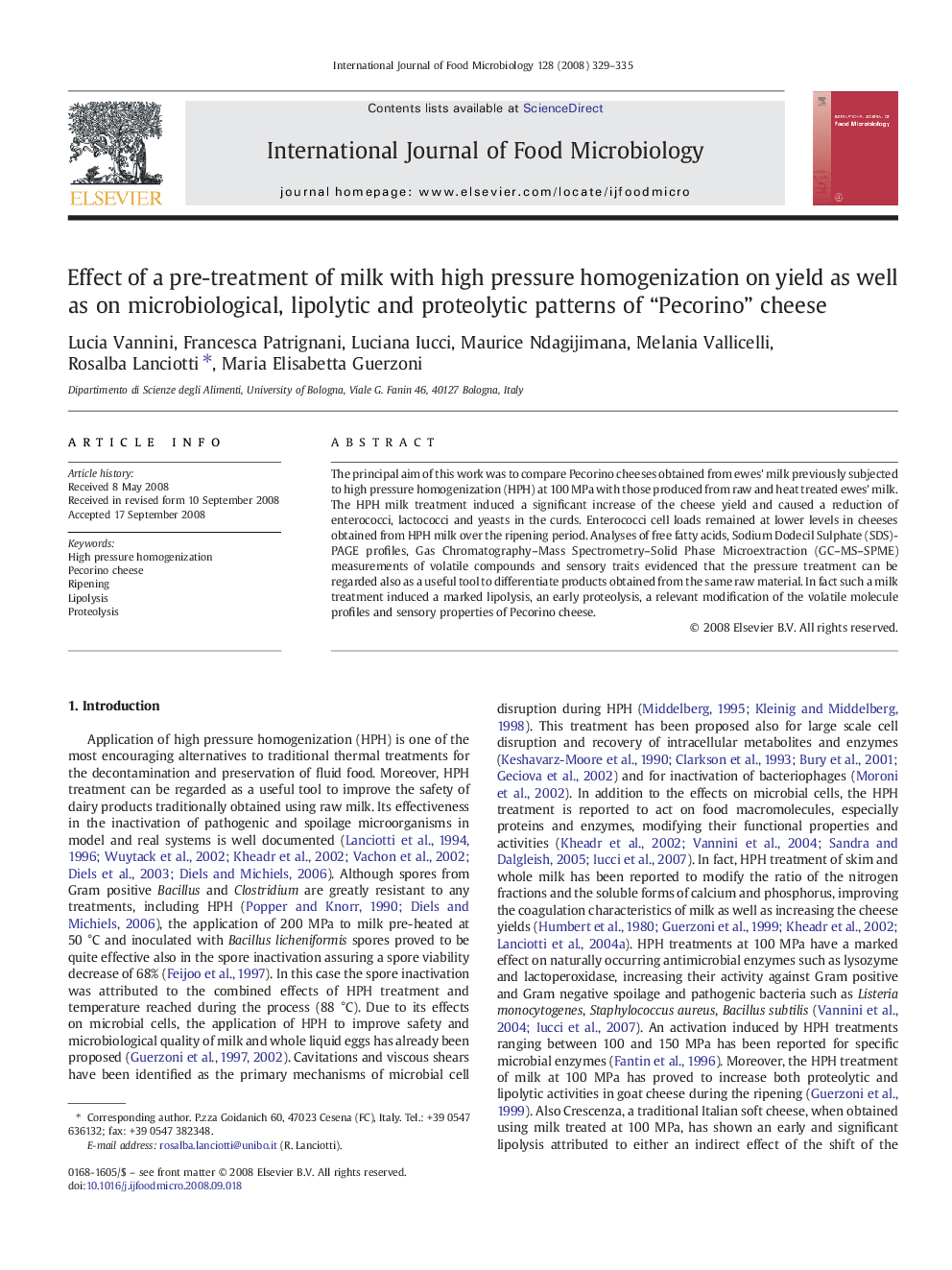| Article ID | Journal | Published Year | Pages | File Type |
|---|---|---|---|---|
| 4368570 | International Journal of Food Microbiology | 2008 | 7 Pages |
The principal aim of this work was to compare Pecorino cheeses obtained from ewes' milk previously subjected to high pressure homogenization (HPH) at 100 MPa with those produced from raw and heat treated ewes' milk. The HPH milk treatment induced a significant increase of the cheese yield and caused a reduction of enterococci, lactococci and yeasts in the curds. Enterococci cell loads remained at lower levels in cheeses obtained from HPH milk over the ripening period. Analyses of free fatty acids, Sodium Dodecil Sulphate (SDS)-PAGE profiles, Gas Chromatography–Mass Spectrometry–Solid Phase Microextraction (GC–MS–SPME) measurements of volatile compounds and sensory traits evidenced that the pressure treatment can be regarded also as a useful tool to differentiate products obtained from the same raw material. In fact such a milk treatment induced a marked lipolysis, an early proteolysis, a relevant modification of the volatile molecule profiles and sensory properties of Pecorino cheese.
